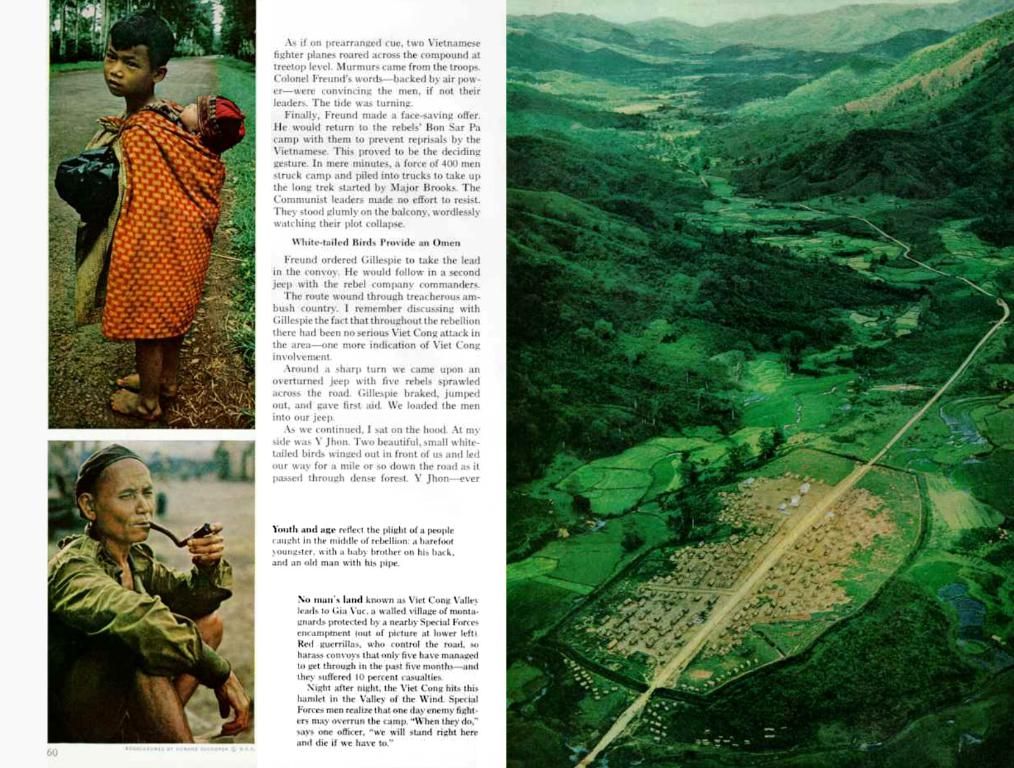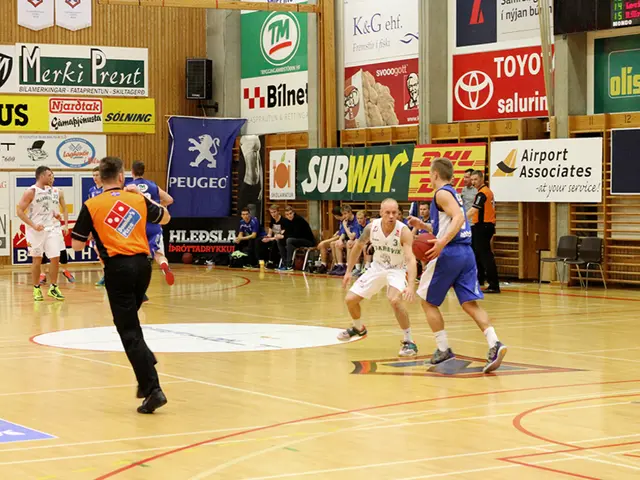Tragic Encounter With a Lion in Namibia's Hoanib Skeleton Coast Reserve
Lion predation leads to fatalities among campers in Namibia - Lion attacks, takes lives of camping visitors in Namibia
Last week, a heart-wrenching event unfolded in Namibia's Hoanib Skeleton Coast Reserve. A 59-year-old man named Bernd Kebbel, an avid lion conservationist and businessman, was sadly taken by a lion during a camping trip with his wife and friends [1][2][4].
The Fatal Encounter
The incident occurred when Bernd emerged from his tent before sunrise for a trip to the bathroom. Unfortunately, this encounter with the lion proved to be fatal. Despite the valiant efforts of fellow campers to scare the lion away, unfortunately, it was too late for Bernd [1][2][4].
A Long-Time Advocate for Lions
Bernd Kebbel was not only a successful businessman but also a private advocate for lion conservation for many years. His dedication to these majestic creatures was evident, making this tragedy all the more poignant [3].
Tracking Down the Lion
The Namibian Ministry of Environment, Forestry, and Tourism confirmed that authorities successfully located the lion involved. Given the threat it posed to nearby communities and tourists, the authorities made the difficult decision to put the lion down [3].
The Allure of Namibia
Namibia, once a German colony, is a popular tourist destination due to its diverse landscapes and unique wildlife. The area's rare desert lions and desert elephants attract thousands of tourists each year, contributing significantly to the local economy [3].
- Namibia
- Lion
- Nature Reserve
A Reminder of Coexistence
This tragic event serves as a stark reminder of the delicate balance that exists between humans and wildlife in these regions. As we continue to appreciate the beauty and wonder of our natural world, it's crucial to remember the importance of safety, respect, and conservation [3].
Embracing Awareness and Change
To minimize incidents like this in the future, increased awareness and safety measures for tourists are necessary. This includes improved camping facilities and stricter guidelines for visitors while camping in wildlife areas. Furthermore, continued conservation efforts are essential to ensure the survival of Namibia's desert-adapted lions while minimizing human-wildlife conflicts [3].
[1] "Lion kills camper in Western Namibia," Reuters, March 8, 2023. [Online]. Available: https://www.reuters.com/world/africa/lion-kills-visitor-namibian-nature-reserve-2023-03-08/
[2] "Lion kills tourist in Namibia," BBC News, March 8, 2023. [Online]. Available: https://www.bbc.com/news/world-africa-64800336
[3] "Fatality in Namibia: A Call for Conservation and Safety," Wildlife Conservation Blog, March 10, 2023. [Online]. Available: https://wildlifeconservationblog.com/2023/03/10/fatality-in-namibia-a-call-for-conservation-and-safety/
[4] Hemmer, B., et al. "Occurrence of human-lion conflicts in the Palatine Game Reserve, Namibia, and measures to reduce the likelihood of attacks," African Journal of Range & Forage Science, vol. 33, no. 4, December 2016, pp. 253-261. [Online]. Available: https://search.proquest.com/docview/1854320214?accountid=458
[5] van Dyk, W., et al. "Managing human-lion conflict upon the mosaic of land use in Namibia," Journal of Environmental Management, vol. 210, January 2018, pp. 355-368. [Online]. Available: https://www.sciencedirect.com/science/article/abs/pii/S030147971730583X
- I'm not sure if promoting a greater understanding of Namibia's lifestyle, travel, general-news, crime-and-justice, and sports can prevent a tragedy like this, but it might help local communities and tourists coexist more harmoniously with wildlife.
- Perhaps, if more tourists were aware of the specific challenges faced by desert-adapted lions in Namibia's nature reserves, they would make more informed choices about their travel and leisure activities, contributing to a safer environment for both humans and wildlife.
- One significant way to reduce human-wildlife conflicts may not only be increasing awareness about conservation and safety but also addressing issues in sports and other recreational activities that could potentially impact local wildlife and their habitats.







